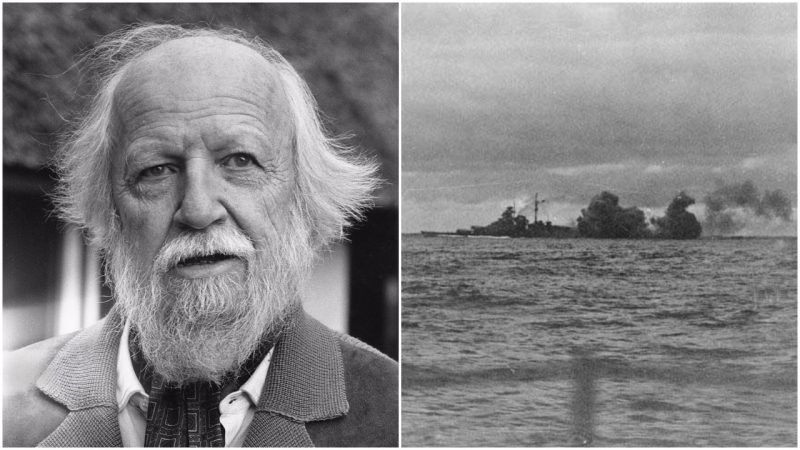William Golding was an influential British novelist and a poet who won the 1980 Nobel Prize in Literature for his acclaimed novel Rites of Passage.
Golding was born in 1911; he attended the Brasenose College, Oxford, and taught philosophy and English at a school in Salisbury, Wiltshire, during the late 1930’s. Before the World War II, he published only a short collection of poems.
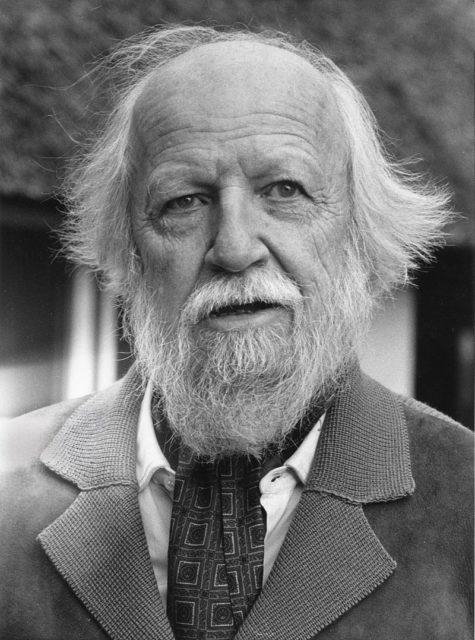
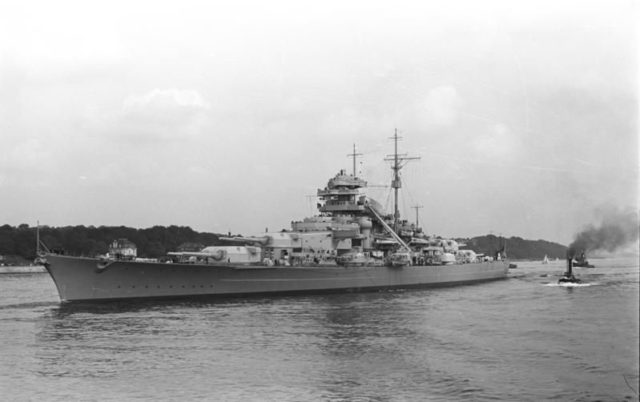
He enlisted in the British Royal Navy in 1940 and saw a lot of action during the war. He was on board at one of the British destroyer ships that chased and destroyed the legendary German battle-cruiser Bismarck in 1941.
He also participated in the D-Day invasion on the 6th June of 1944, when he commanded a landing craft. His landing ship was the only ship out of 24 that survived the massacre during the action at Walcheren, and he continued to fight as an infantry soldier upon reaching the shore.
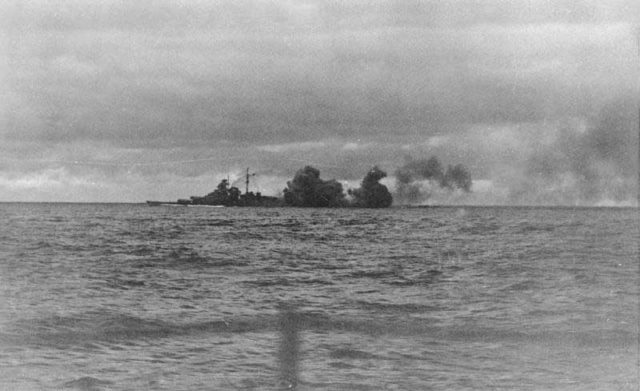
The war had a profound effect on Golding’s worldviews, and his wartime experience inspired many of his literary concepts. After the war, he continued to teach at the same school where he taught before the war and published his first novel Lord of the Flies in 1953. The name of the novel is a reference to Satan, and the novel depicts a group of children that become stranded on a desert island after a plane crash. The children gradually start developing a society in which the weak are oppressed, and the strong are the dictators, and the two sides start a violent war.
The novel reflected Golding’s views on war: he considered the war to be an awful game for adults. This notion appeared in his other successful novel, Free Fall. The novel explores the hardships and pain of an American soldier imprisoned at a Nazi POW camp during the World War II.
Somber and graphic details in the novel reveal that it was written by a person who had a significant personal insight of the life of a troubled soldier during the rough times of war.
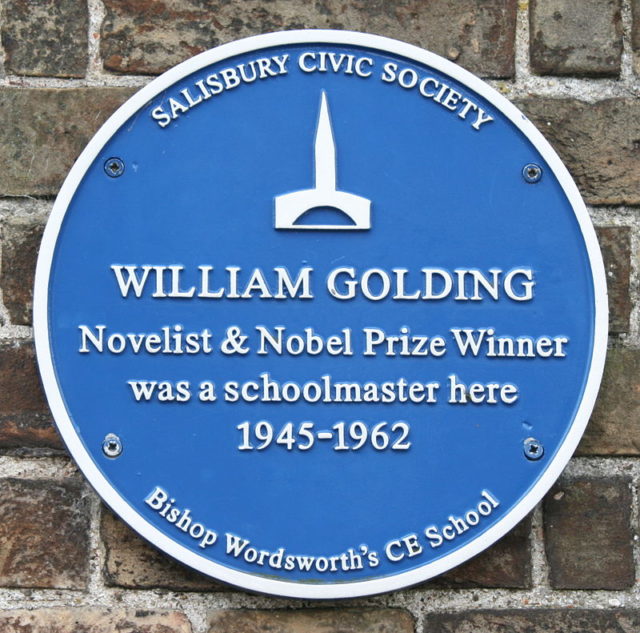
All Golding’s novels are filled with themes that explore the absurdity of war and comment on the inherent evil that plagues the human race. He used his experience during the World War II to shape his literary discourse, and his books remain to be extremely influential.
Although his literary themes deal with the dark side of humanity, Golding remained an optimist throughout his life and infused most of his works with a hefty dose of humor.
